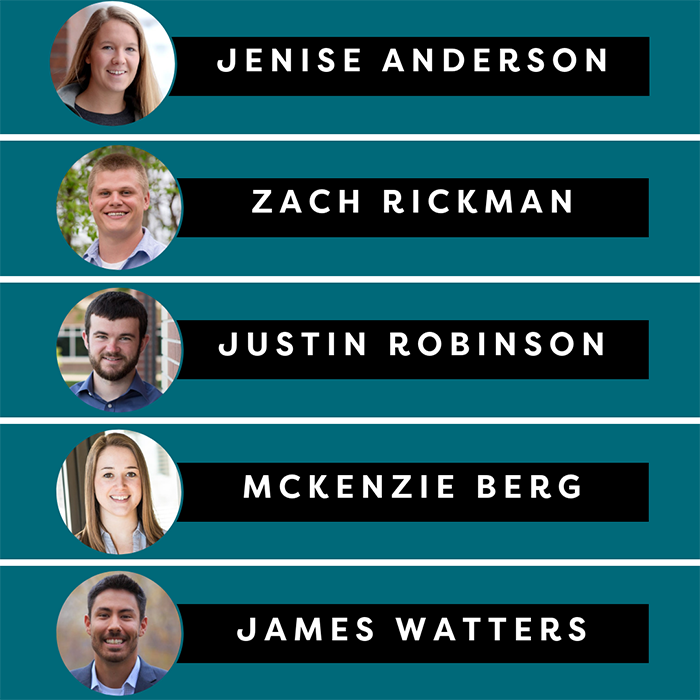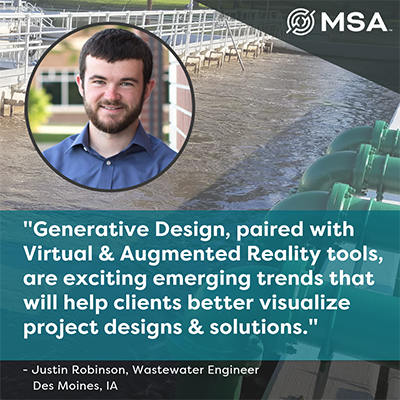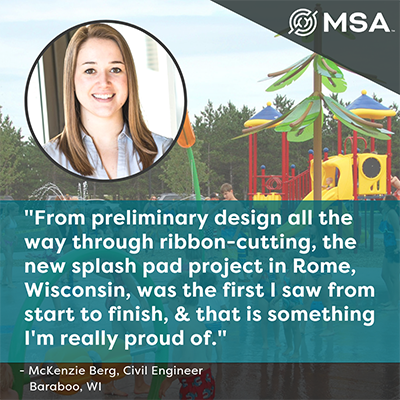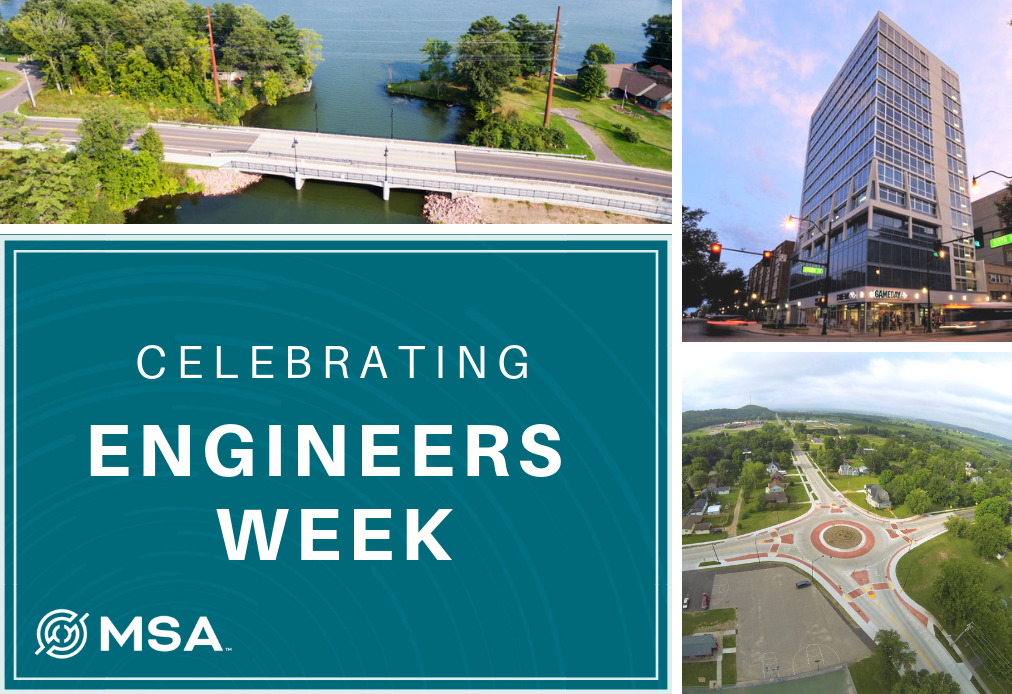Founding Father and President George Washington is widely considered the United States’ first engineer, an avid land surveyor and outdoorsman who helped chart the state of Virginia’s back country.
As an early teenager, he learned the basics of surveying and land measuring, before launching his career as a professional surveyor in 1749. From here, he went on to achieve an array of notable accolades, climbing the ranks of the military and eventually being elected the first President of the United States in 1789.
So, how does a young person enter into an engineering career, and where does their path lead? Who influences them along the way? What inspires them to keep learning?
These are the questions we ask here, on National Engineers Week.
Founded in 1951 in commemoration of George Washington’s birthday, EWeek is dedicated to highlighting the young engineers and innovators of today. Join us as we introduce you to a handful of young MSA engineers and ask them some of those career-influencing questions. We are fortunate to have these individuals on our team, leading the charge toward a stronger engineering future and a brighter world for us all.

Jenise Anderson works in our MSA Dallas office as a biological and agricultural engineer. She earned both her bachelor’s and master’s degrees in biological and agricultural engineering at Texas A&M University.
Zach Rickman joins MSA in Marshfield, Wisconsin, as a civil engineer with a bachelor’s degree in civil engineering from the University of Wisconsin-Madison.
Justin Robinson hails from the MSA office in Des Moines, Iowa, where he serves as a wastewater engineer. Justin earned his bachelor’s degree in civil engineering from Iowa State University.
McKenzie Berg works from MSA headquarters in Baraboo, Wisconsin – a civil engineer with emphasis on Parks and Recreation projects. She earned her bachelor’s degree in civil engineering from the University of Wisconsin-Platteville.
James Watters is a project engineer and certified Professional Engineer (PE) in both Minnesota and Iowa, working from our office in St. Paul, MN. James earned his bachelor’s in civil engineering from Iowa State University.
Q: Why did you choose engineering as a career path? Did anyone in particular influence you?
Jenise Anderson: “Various high school teachers and my parents helped foster a love of learning in general, but especially of science and math. While they didn’t specifically push for engineering, they did push for a STEM career, and engineering seemed like a logical step. I chose Ag Engineering due to the wide range of study available academically.”
Zach Rickman: “I’ve always been curious about how stuff works and love to tinker with things. Ultimately, I found a career that aligns with my passions in life. My father has always been a “fixer” when it comes to anything around the house or at his job. I look up to him on a number of different levels, and wouldn’t be where I am today without him.”
Justin Robinson: “I have always had an interest in math and science, but I also enjoy being outdoors in nature. I was looking for a career which would let me solve problems between the built and natural environments. Water and wastewater may not sound like a glamorous subject, but the chemistry and biology that we use to protect our most vital resources is fascinating. My high school calculus teacher, Mr. (Darryl) Schaefer was a great source of inspiration. He was an incredible teacher that really instilled a commitment to lifelong learning.”
McKenzie Berg: “My papa (grandfather) is a civil engineer and he is my biggest supporter (him and my nana – they are the best). They raised me since I was 11 and my papa, now retired, owned his own civil engineering firm so I was surrounded by plans most my life. There is actually of photo of the two of us on my college graduation day from UW-Platteville, where my papa is also an alumnus, of us standing in front of the framed charter for UW-Platteville’s ASCE Student Chapter with my papa’s signature on it from the 1970s.”
James Watters: “I’ve always been a linear thinker, so naturally, engineering lends itself to that train of thought. I’ve always liked seeing how things work. I enjoy reading car repair manuals and parts diagrams. I guess that’s why I enjoy putting project plan sets together so much. I had been through my third major at Iowa State University and I found myself four semesters into college without a great direction. It was then that I decided to follow what every teacher and test had told me in the past and start a degree in the field of civil engineering.”
Q: What project or accomplishment in your career are you most proud of, and why?
Jenise Anderson: “I’m proud of the trust I’ve gained, whether it’s with clients or coworkers, especially when it’s with people that I look up to and trust. I feel like that means I’m doing it right.”
Zach Rickman: “A project I’m proud of is one of the first I saw from start to finish, assisting in building the Health Sciences Center at Rock Valley College in Rockford, Illinois, with a prior employer. I assisted in all phases of the project from MEP coordination to the interior finishes of the building. It’s a great feeling to have a direct connection to the success of a project.”
Justin Robinson: “Developing resources to create graphic visualizations to improve communication and help clients picture what their project will look like in the end.”
James Watters: “Signing my first plan set after achieving my professional licensure was very gratifying. That first plan set I was involved in almost every aspect of the project from software programming to plan set drafting and construction inspection. I saw how things designed in the office that seem very simple don’t always go as planned during construction. Learning new ways to improve and still providing a quality project is pretty satisfying.”
Q: What advice do you have for aspiring young engineers?
Jenise Anderson: “Don’t belittle the experiences you get along the way – any experience you have doing anything will help you to grow and help you to be a part of a diverse team.”
Zach Rickman: “Don’t be intimidated of the engineering field. If you have the passion and determination for what you believe in, you will be successful. I think there is a type of engineering field for everyone out there that is even partially interested. It is a great career that has come a long way in just a short time. It is exciting to see what problems engineering can solve to make our world a better place for the future.”
Justin Robinson: “Never be afraid to ask questions. Be committed to learning.”
McKenzie Berg: “Get involved with organizations as soon as you can (ASCE, WEMS, etc.). You will meet people in the same boat as you (maybe literally if you join concrete canoe through ASCE), you will find study partners and friends, and it could make a big difference on your college experience – I know it did for me!”
James Watters: “Don’t let the typical ideas about engineering, tough classes with lots of high level math and science intimidate you. Often times you are your own worst enemy and you don’t know you can’t do something unless you try.”
